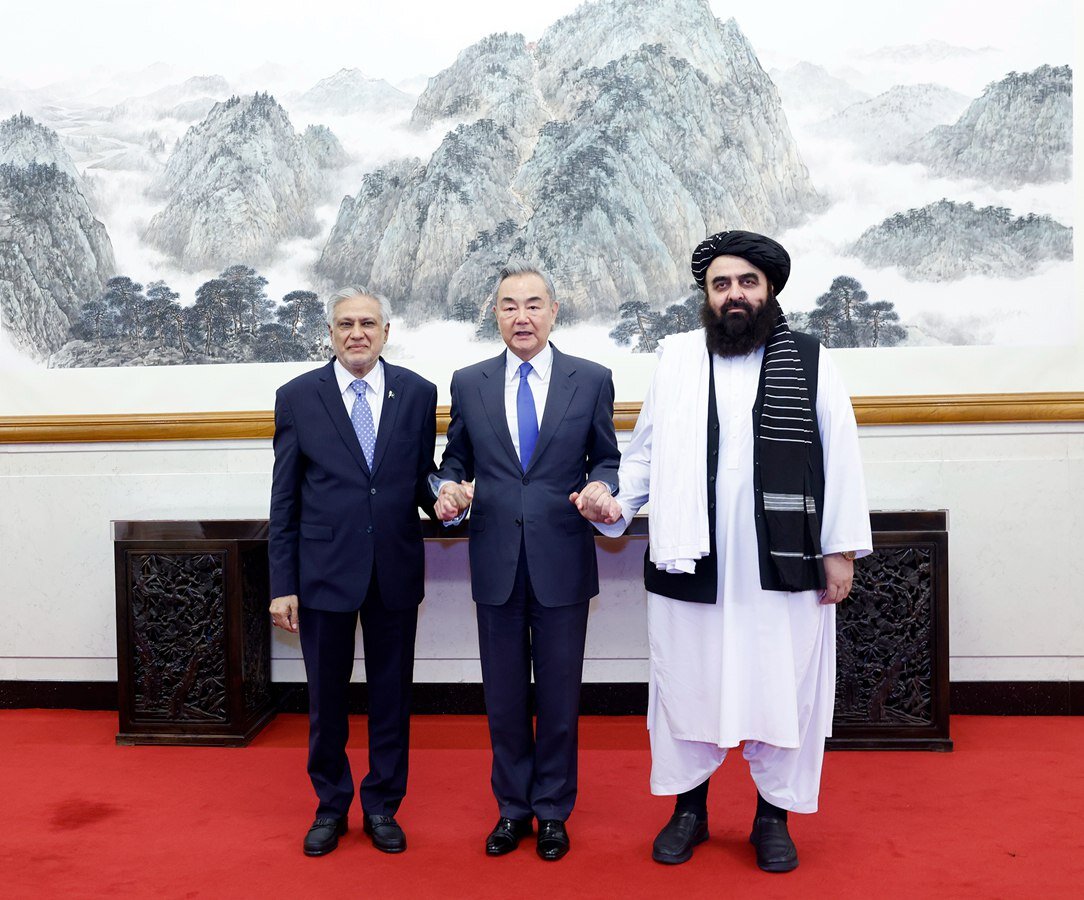Beijing breakthrough: Afghanistan and Pakistan to upgrade diplomatic relations

BEIJING- China reaffirmed its role as a key diplomatic mediator through Wednesday’s informal trilateral meeting in Beijing, offering Afghanistan and Pakistan a crucial platform to address bilateral issues through peaceful dialogue.
Foreign Minister Wang Yi chaired the meeting with Pakistan’s Deputy Prime Minister and Foreign Minister Mohammad Ishaq Dar and Afghanistan’s Acting Foreign Minister Mawlawi Amir Khan Muttaqi.
The three top diplomats praised the progress made under the China-Afghanistan-Pakistan Foreign Ministers' Dialogue and held constructive discussions on deepening trilateral cooperation to achieve mutual benefits.
The Beijing talks come at a critical juncture in Afghanistan-Pakistan relations, strained since December 2024 when Afghan officials accused Pakistan of deadly airstrikes in Paktika. While Pakistan has not acknowledged the strikes, it describes them as counterterrorism operations—a claim Kabul disputes.
The Chinese foreign minister, who is also a member of the Political Bureau of the CPC Central Committee, reviewed and summarized the key outcomes of the meeting.
He reiterated China's principled position supporting Afghanistan and Pakistan's sovereign right to choose development paths aligned with their national circumstances, while preserving their territorial integrity and core national interests.
The top Chinese diplomat noted that Afghanistan and Pakistan expressed clear willingness to elevate diplomatic relations and agreed in principle to exchange ambassadors as soon as possible. “China welcomed this and will continue to provide assistance for the improvement of Afghanistan-Pakistan relations,” Wang said.
While Pakistan and Afghanistan maintain embassies in each other's capitals, both diplomatic missions are currently led by charge d'affaires rather than ambassadors.
Wang highlighted the consensus between Pakistan and Afghanistan to jointly combat terrorism through enhanced security cooperation, address shared concerns regarding terrorist groups, and prevent external interference in regional matters. Both sides committed to preserving regional stability and fostering an environment conducive to mutual development.
He added that both China and Pakistan remain committed to supporting Afghanistan's reconstruction and development, and stand ready to expand trade cooperation while assisting in building Afghanistan's sustainable development capacity.
The three nations reached consensus to intensify Belt and Road collaboration, with particular focus on extending the China-Pakistan Economic Corridor (CPEC) to Afghanistan, and upgrading regional connectivity systems. Furthermore, they agreed to expedite preparations for the trilateral foreign ministers' meeting in Kabul.
The CPEC, a $64 billion flagship project of China's Belt and Road Initiative (BRI), establishes comprehensive connectivity between China's Xinjiang province and Pakistan's Gwadar Port through an integrated network of highways, railways, and energy pipelines. The BRI seeks to strengthen economic integration and development cooperation across participating nations.
For now, the Beijing meeting reflects China's sustained commitment to facilitating dialogue, building on its achievements in fostering reconciliation. In 2023, China played a pivotal role in restoring Iran-Saudi Arabia relations, while its mediation of the July 2024 Hamas-Fatah agreement further demonstrated its commitment to fostering political solutions.
